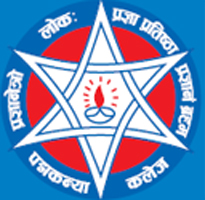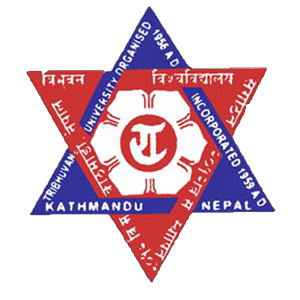Overview
MA in Anthropology program offered at Ratna Rajya Laxmi Campus - RR Campus, affiliated with TU:
The Master of Arts in Anthropology program at Ratna Rajya Laxmi Campus (RR Campus) is a rigorous academic journey designed to teach students about the complexities of human societies, cultures, and biological aspects. This program integrates classical anthropological theories with contemporary global issues such as climate change, development, gender studies, and cultural resilience. Focusing on both theoretical foundations and hands-on ethnographic research prepares students to critically engage with sociocultural phenomena and contribute to addressing pressing societal challenges.
Program Duration
The MA in Anthropology is a two-year program divided into four semesters. Each semester lasts six months and includes continuous assessments and final examinations at the end of each term. To graduate, students must complete 60 credit hours, including a thesis.
Eligibility Criteria
Aspirant applicants must meet the following criteria to be eligible for admission:
-
Bachelor's Degree in Anthropology, Sociology, Social Work, Psychology, History, Geography, Political Science, or related disciplines recognized by Tribhuvan University.
-
Graduates from the Education, Management, Law, Medicine, Engineering, Forestry, or Agriculture faculties are also eligible.
-
Tribhuvan University requires a minimum academic performance.
Admission Process
-
Candidates must submit their academic transcripts, certificates, and other required documents.
-
TUFOHSS offers a one-hour written entrance exam that provides a one-hour written entrance exam that assesses verbal reasoning, analytical skills, and subject knowledge.
-
Admission is based on the merit list generated from entrance exam scores and enrollment capacity.
Course Outline
The curriculum is divided into required and optional courses, allowing flexibility in areas of interest. The program covers:
-
Core Theories and Methods: Anthropological theories, research methodologies, and ethnographic practices.
-
Regional Studies: Focus on Nepal, the Himalayas, and South Asia.
-
Specialized Topics: Medical anthropology, environmental anthropology, gender studies, disaster resilience, and more.
-
Thesis Research: A mandatory thesis project in the final semester.
Subjects Offered
First Semester
-
Introduction to Anthropology
-
Classical Theories in Anthropology
-
Kinship Studies
-
Research Methods in Anthropology
-
Anthropology of Nepal and the Himalayas
Second Semester
-
Contemporary Theories in Anthropology
-
Recent Trends in Kinship Studies
-
Caste, Ethnicity, and Nationalism
-
Advanced Research Methods
-
Economic Anthropology
Third Semester
-
Linguistic Anthropology
-
Physical Anthropology
-
Medical Anthropology
-
Anthropology of Development
-
Society, Culture, and Climate Change
Fourth Semester
-
Archaeological Anthropology
-
Research Design and Writing
-
Thesis
-
Historical Anthropology
-
Anthropology of Feminism and Gender Studies
Program Objectives
The program aims to:
-
Equip students with an advanced understanding of anthropological theories and research methods.
-
Foster critical thinking and analytical skills for addressing cultural and societal challenges.
-
Develop expertise in ethnographic fieldwork and data analysis.
-
Promote interdisciplinary approaches to studying human behavior and social systems.
-
Encourage ethical practices and the principles of social justice and human rights.
Teaching Methodology
The program employs a participatory teaching approach that combines lectures, case studies, group discussions, and fieldwork. Students engage in interactive classroom sessions, research assignments, and presentations to enhance their analytical and communication skills. Multimedia tools and real-world examples ensure a dynamic and engaging learning environment.
Learning Outcomes
Graduates of the program will:
-
Demonstrate advanced knowledge of anthropological theories and practices.
-
Conduct independent ethnographic research using qualitative and quantitative methods.
-
Analyze sociocultural and environmental challenges from a global and local perspective.
-
Apply interdisciplinary approaches to address social inequalities and promote inclusivity.
-
Communicate complex ideas effectively through academic writing and presentations.
Future Scope
The program prepares students for:
-
Doctoral studies in anthropology and related fields.
-
Careers in academic research, public policy, and development sectors.
-
Contributions to global discussions on climate change, social justice, and cultural diversity.
Career Prospects
MA in Anthropology graduates can pursue careers in:
-
Research Institutions: Ethnographic studies and policy analysis.
-
Development Agencies: Program design and implementation in NGOs and INGOs.
-
Academia: Teaching and curriculum development.
-
Corporate Sector: Cross-cultural consulting and human resource management.
-
Media and Journalism: Cultural reporting and documentary filmmaking.
Scholarship Opportunities
RR Campus offers scholarships to academically outstanding and economically disadvantaged students. Scholarships are based on merit, need, and inclusivity, ensuring equal opportunities for deserving candidates.
Fee Structure
The tuition fees for the MA in Anthropology program are determined by the admission department of RR Campus. Contact the college for detailed and updated information.
Extracurricular and Co-Curricular Activities
Students participate in workshops, seminars, field visits, and cultural events. These activities enhance interpersonal skills, cultural awareness, and community engagement while fostering a sense of teamwork and leadership.
Real-World Application
The program bridges theoretical knowledge with practical applications through internships, fieldwork, and collaborative research projects. Students work with communities to address social challenges, creating meaningful and sustainable impacts.
Sustainability and Social Impact
The curriculum emphasizes sustainable practices and anthropologists' ethical responsibility to promote cultural preservation, environmental conservation, and social equity.
Skill Development
Students gain expertise in research methodologies, data analysis, critical thinking, and effective communication. The program also fosters leadership and project management skills essential for professional success.
Global Perspective
The program integrates comparative studies and cross-cultural perspectives, preparing students to address global challenges while understanding local contexts.
Facilities and Support
RR Campus provides modern classrooms, a well-equipped library, advanced research tools, and personalized academic counseling. Support services include career guidance and mental health resources.
Why Choose the MA in Anthropology Program?
This program offers an interdisciplinary curriculum, practical training, and opportunities for specialized research. Its focus on global and local issues ensures students are empowered for academic and professional success.
Is the MA in Anthropology Program Right for You?
The program is ideal for individuals passionate about understanding human societies, cultures, and behaviors. It also caters to students seeking research, academia, or social development careers.
What is the Future of the MA in Anthropology Program?
The program continues to gain relevance as global challenges like climate change, social inequality, and cultural preservation demand anthropological insights. Graduates will play critical roles in shaping sustainable and inclusive societies.
How to Improve Your Study of Anthropology as a Student?
To excel in anthropology, you must actively engage in discussions, stay updated on contemporary issues, and participate in fieldwork opportunities. Reading ethnographies, attending seminars, and collaborating with peers will enhance your learning experience.
Conclusion
The MA in Anthropology program at RR Campus is a dynamic and interdisciplinary academic journey that prepares students to understand and address societal complexities. With its robust curriculum, practical training, and focus on global and local perspectives, this program equips graduates with the skills and knowledge to make meaningful contributions to anthropology and beyond.





















